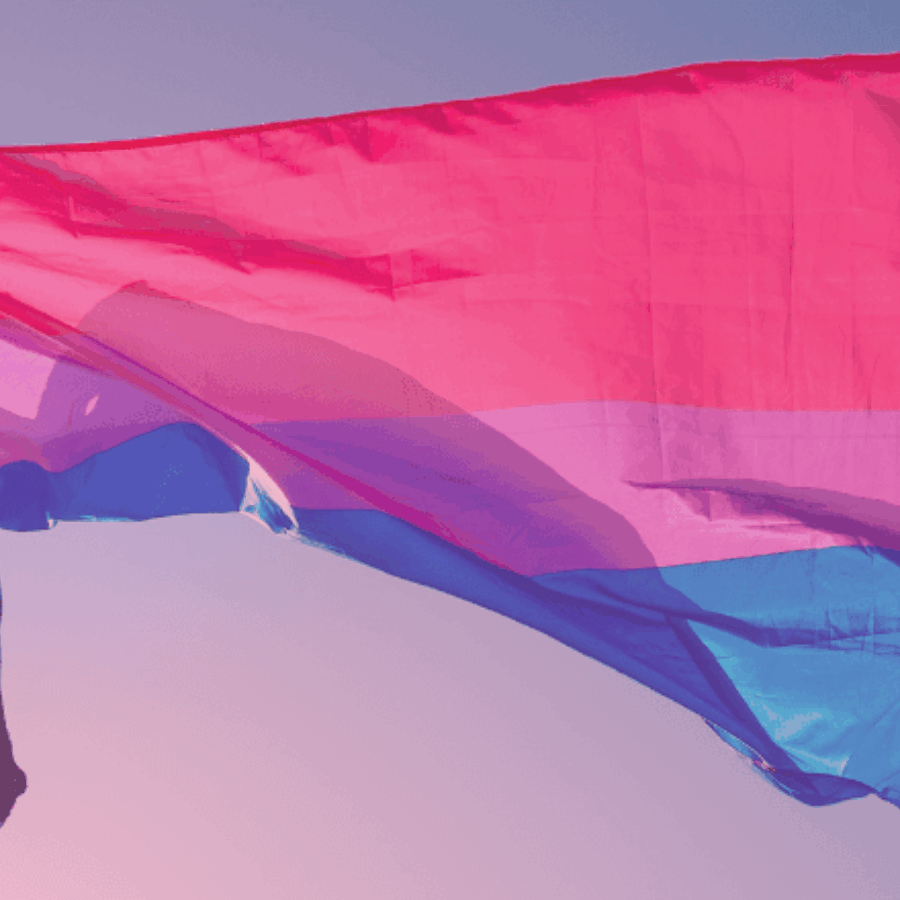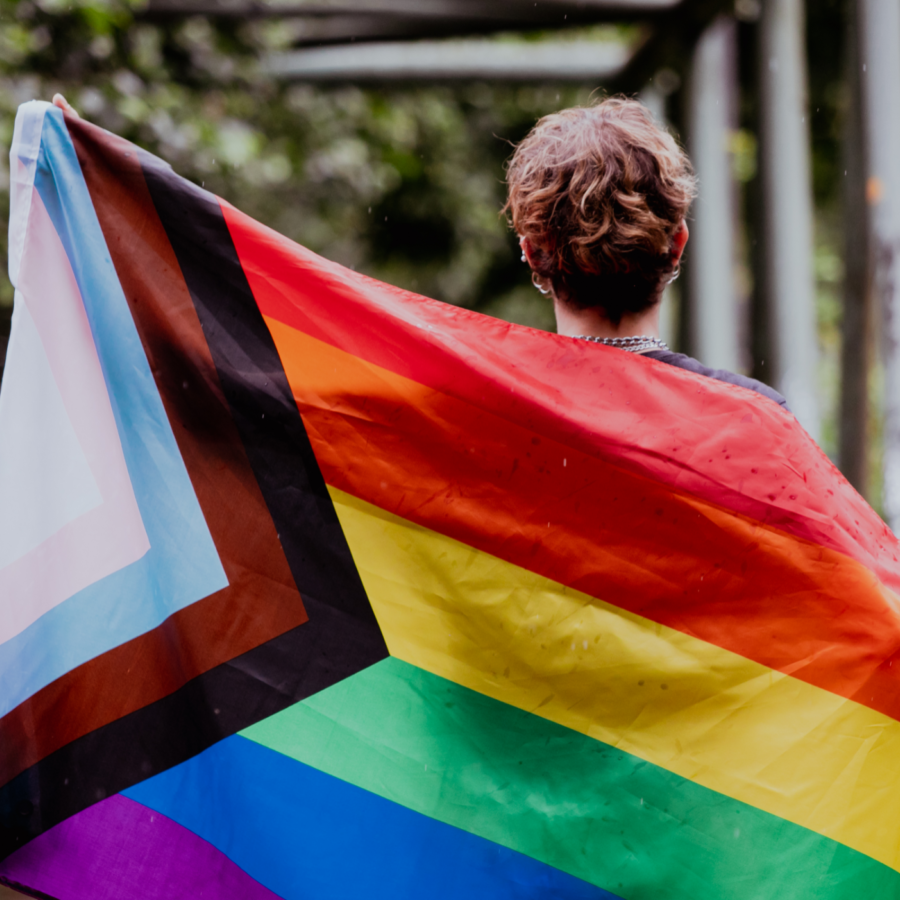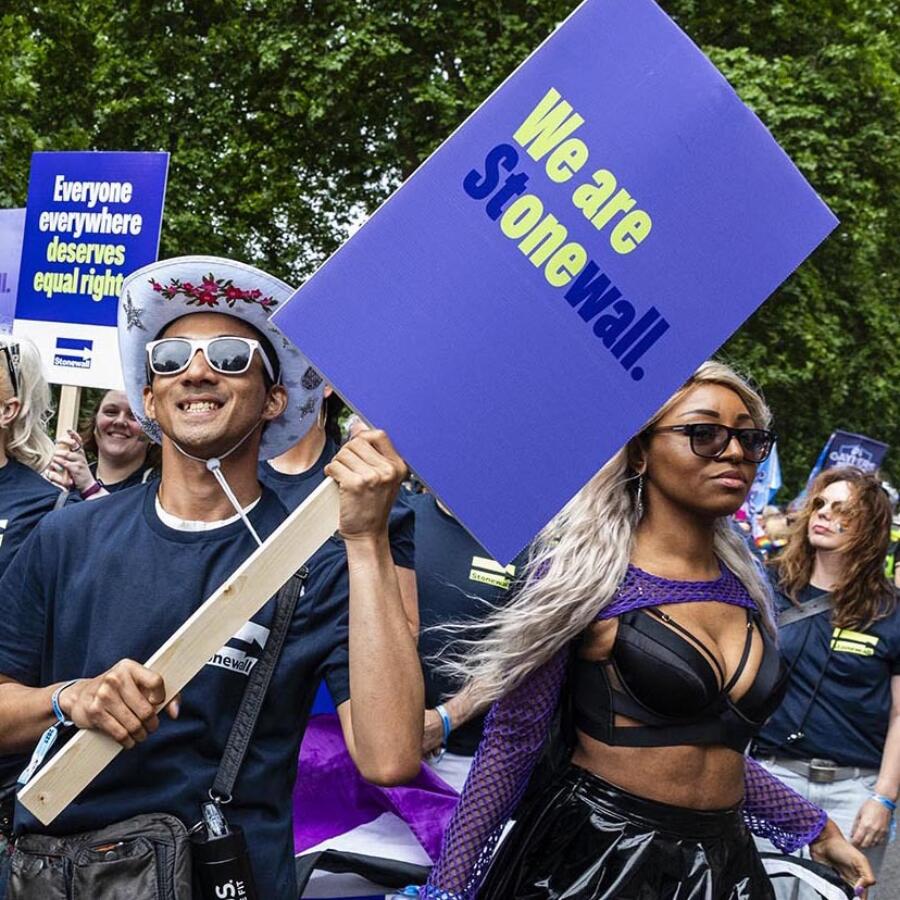
10 ways you can step up as an ally to bi people
What do we mean by bi?
When we talk about 'bi', we are using 'bi' as an umbrella term to describe a romantic and/or sexual orientation towards more than one gender. Bi people may describe themselves using one or more of a wide variety of terms, including, but not limited to, bi, bisexual, pan and/or queer. There is a range of terms under the umbrella, and no ‘right’ way to be bi. Bi people can be trans, including non-binary. Bi people can be cis. Bi people can be ace.
What is biphobia?
Biphobia refers to the prejudice, discrimination, or negative attitudes directed toward people who identify as bi. Biphobia can be based on harmful stereotypes, misconceptions or societal bias. It can affect anyone who is, or who are perceived to be, bisexual, regardless of how they identify.
Harmful stereotypes about bi people
Harmful stereotypes about bi people often portray them as confused, greedy, hypersexual, or as secretly gay, lesbian, or straight. These misconceptions contribute to widespread misunderstanding and erasure. Bi representation in the media, films and on TV is minimal, and when bi characters do appear, they’re frequently reduced to stereotypes or used as the punchline of a joke. Representation of bi people who experience other forms of marginalisation (like those who are disabled, people of colour, or trans) is especially lacking.
What does being an ally mean?
Generally it means using your voice and influence to support and uplift a group you’re not personally part of. For example, a straight and/or cis person who supports members of the LGBTQ+ community. Members of the LGBTQ+ community can also be allies to one another. Read more about LGBTQ+ terms.
Practical tips for everyday bi allyship
Everyone can do more to be bi inclusive, including those within the LGBT community. Here are some simple things you can do to create safe and supportive environments, in particular for bi people.
1. Believing bi identities matters
Bi people exist, and all bi identities are valid. It is all too common for bi people to be challenged and scrutinised on their identity. One bi person might generally date one gender, another might have been in a monogamous relationship with somebody for many years, and they can both still be bi. Bi identity isn’t defined by relationship history or patterns. Believing bi people when they tell you who they are is the absolute baseline of allyship. Listening and affirming is how we build a truly inclusive world.
2. Make no assumptions about sexuality
Don’t assume someone’s identity based on their current or previous partners. The gender of someone’s sexual or romantic partners doesn’t define them. Take their lead on the language they use to describe their relationships and identity, whether they identify as bi, pan, queer, any of the other labels under the bi umbrella, or no label at all. Some bi people might also use the terms lesbian or gay to describe themselves in some contexts.
3. Recognise and challenge biphobia
Whether it’s street harassment or a harmful generalisation about bi people, make sure to challenge biphobia when you see or hear it. Don’t leave it to bi people to do all the work, and support other allies when they challenge prejudice.
4. Uplift and support marginalised bi people
This goes for everyone in the bi community, as well as allies. Bi people of colour (PoC/BAME) are often doubly erased and marginalised. Bi men continue to face stigma both within and outside the LGBT+ community. Ace bi people are told they ‘can’t’ be bi. Bi people of faith are often invisible in narratives about LGBT inclusion in faith spaces. And sometimes Trans bi people may have their identity invalidated when others question how being bi intersects with their gender. To learn more and start challenging these harmful stereotypes, check out the #BisexualMenExist campaign.
5. Use inclusive language that includes bi people
Using terms like “gay” as a catch-all can unintentionally erase bi people, especially when you’re unsure how someone identifies. Language shapes visibility, and bi people deserve to be seen and respected. But inclusion doesn’t mean intrusion. Outing someone or pressing them to define their identity is harmful. Respecting privacy is just as important as using inclusive language.
There are plenty of resources available to help you learn about bi-inclusive language. Being a good ally means doing the work, not just showing up, but showing up well-informed.
6. Make LGBTQ+ spaces bi inclusive
Finding community and belonging can be life-changing, and every LGBTQ+ person deserves to feel accepted and respected. That includes bi people and their partners of any gender.
Make it explicit that bi people are welcome at your event or venue, and that biphobia will not be tolerated. Visibility and representation are key, if you're hosting speakers or performers, plan ahead to ensure bi voices are included. Brief all participants on your commitment to bi inclusion so everyone feels safe, seen and celebrated.
7. Support bi organisations and campaigns
There are some amazing groups that have been amplifying bi voices, tackling biphobia and building communities for years. Many of them are run by volunteers, but you can support them by donating, sharing their work or lending your time: BiPhoria, Bi Pride UK, Bi's of Colour, Bi Survivors Network, Biscuit, The Bisexual Index.
8. Ensure bi inclusivity in workplaces and institutions
As a first step, make sure all of your institutional policies are explicitly bi inclusive. These policies should protect all employees, regardless of their gender or the gender of their partner. Try to ensure that any wording used avoids labelling someone’s relationship (e.g. ‘straight’, ‘gay’, ‘wife’, ‘husband’) in a way that they might reject. Make sure that biphobic bullying is explicitly addressed in policy and practice.
9. Treating bi lives as full lives
Be aware of the “bi double bind.” Biphobia can double down hard on bi people if they are not seen to ‘fit’ a stereotype. For example, if a bi person has multiple romantic and/or sexual partners, it’s seen as ‘proof’ of the greedy and promiscuous stereotype, and yet a bi person in a monogamous relationship might be accused of ‘making up’ their bi identity. Affirm your bi friends’ lives and relationships, and remember how much harm negative stereotypes can cause bi people.
10. Celebrate bi people
Amplify and celebrate bi people and their stories. Days like Bi Visibility Day are a great reason to celebrate, but ensure that you’re also giving bi identities and experiences a platform throughout the year. As a start, look up bi creators on social media, follow them and share their content.




